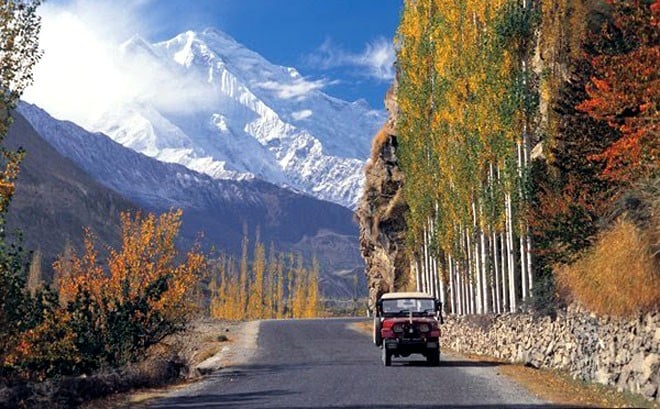
A trip to Hunza Valley turned out to be an enlightening experience

Over the past 10 days, I have travelled more than two thousand kilometres, making my way through the various cities and villages that comprise the north of Pakistan. The trip that started off as a mere excursion to the Hunza Valley to enable interaction with the local school children ended as an experience that influenced me as a person more than any other had previously done.
My journey to Hunza was far more eventful than my routine in my hometown Lahore. Apart from the scenic beauty and the thrill of travelling through the mountainous terrain, there was something much more important happening on the journey -- the coming together of different people from different walks of life.
Surprisingly, it was not just the people of Hunza who taught me something, the people that I had with me on the trip also had tales to tell. It was these interactions that helped me grow not only as an individual but as a member of this world.
When we got to the Hunza Public School in Karimabad, I discovered a different definition of life -- one more expansive, deliberate and kinder. As I learned about their lifestyles and their ways, my mind opened up to newer, better ideas about improving my own life back home in Lahore; something I never knew needed changes.
Aside from pin-posted application boxes and communal house living, what interested me most were the origins and results of the ‘Apricot Revolution’ of Hunza. Years ago, when the people of Hunza established their villages, their only means of living came from planting apricot trees. The plantation started out as a commodity but soon became a property, and is now a symbol of times gone by.
Examples of all these could be seen in the very simple, day-to-day rituals and habits of the locals; their moulded parathas that are supposed to be dipped in apricot oil, their ownerships and legacies associated with individual trees and plants, and their adoration for all things apricot.
A time came where I was eating an apricot paratha with another paratha supposed to be dipped in the same oil in order to take a bit of the fruit pudding. This repetition may look mundane and distasteful to a common Lahori but if we picture the past behind it, this strange amalgamation is beautiful; symbolic of a legacy.
The Northern Areas of Pakistan are mostly related to scenic beauty and natural wonders, yet I believe the people that live among those beautiful wonders are truly what make the area worth visiting and learning from, it’s not just their lifestyle or their habits, it is in turn who they are due to the specific lifestyle that they have adopted, which shows a Lahori like myself what a truly beautiful place the north is.